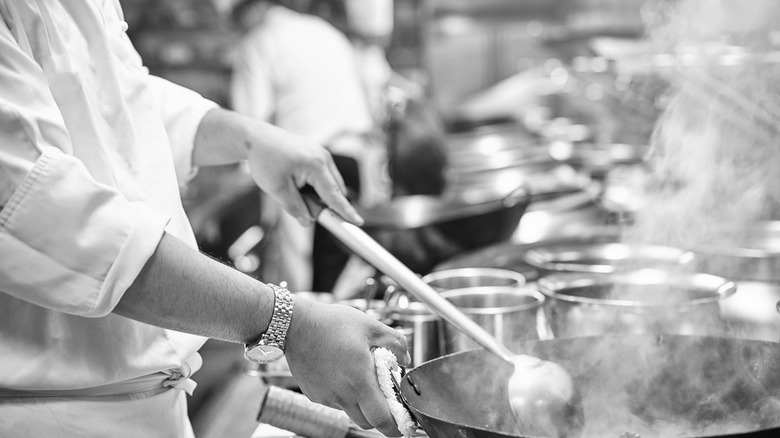What Is 'Ethnic' Food?
How we talk about 'ethnic' food matters, and here's why
We may receive a commission on purchases made from links.
The "best cheap eats in your city." This time of year, it feels like every food publication—this one included—puts out at least one of these curated lists. Though they may seem harmless, these roundups featuring what tends to be meals fit for a hangover ringing in at less than ten dollars are also fertile ground for problematic discourse.
Take this quote from one such list that states "immigration only enriches the cheap-eats catalogue."
At first glance, you might gloss over the statement without pause, but most people of color, like myself, readily recognize this coded language, which implies food produced by immigrants is inherently cheap. The optimist in me believes the authors have no ill will and probably even think they are doing good by showcasing the value immigrants bring to our country. But as a racial minority, I can't help but take an exacting eye to the words used to discuss different groups of people.
And at a time when America is particularly divided and food has the power to serve as a great uniter, we need to be more thoughtful about how we speak.
Consider the term ethnic. Now think about the countries whose food you describe as such versus those you do not. You'll start to notice a pattern. Do you usually label French and Japanese as ethnic? Or do you call them international cuisines?
Historically, the term ethnic has been used to categorize people and cultures "outside the norm," and it's precisely this otherization that's dangerous. As Lavanya Ramanathan states in her piece on "calling immigrant food 'ethnic,'" "Immigrants' identities are deeply tied to the foods we bring with us. When we hear our cuisine described as exotic, hodgepodge, greasy or cheap, you might as well be remarking disdainfully about our clothes or skin color." Just so, when cheap-eats lists are riddled with predominantly "ethnic" cuisines, as even Tasting Table's own lists tend to reflect, we unwittingly perpetuate differences in worth.
Associate professor of food studies at New York University Krishnendu Ray gets to the root of the matter in his book, The Ethnic Restaurateur. He explains that diners aren't willing to pay a high price for food they consider "ethnic," but instead reserve their wallets for so-called "international" dinners, like Japanese omakase. "We want 'ethnic food' to be authentic, but we are almost never willing to pay for it," he says in an interview with The Washington Post. For example, two similar menu items, steak frites and carne asada, typically demand very different price tags, he later points out.
And ethnic isn't the only loaded term we need to use with caution. Another common trope that warrants speculation is the supposed elevation of foods. It implies that the subject was inferior before some catalyst improved its standing. But according to what measure? The speaker might reference rare ingredients or sophisticated tools and techniques, but it's dangerous to applaud the so-called "improvement" of a cuisine just because chefs are applying certain (often Western) techniques. (Sequentially, who assigns value is an integral part of this conversation, but the lack of diversity in food writing is a whole different story.)
Look closely, and you'll see implicit bias loaded in our go-to lexicon, whether it's the sudden trendiness of a global cuisine that millions of people already consume every day or, even worse, if someone claims to have "discovered" said cuisine.
Luckily, there are chefs and food writers moving the needle. Edouardo Jordan from JuneBaby in Seattle, for one, has dedicated an entire section of his restaurant's website to an encyclopedia of terms related to Southern food, so that his customers will be more educated about his food before they even enter the restaurant. He doesn't just describe the food itself, but he also defines relevant terms some diners might misunderstand. In doing so, he not only contextualizes his food and mission at JuneBaby, but he contributes to a larger conversation, too.
He's not alone in putting his words where his mouth is either. Take food writers like Toni Tipton-Martin and her compilation of The Jemima Code, Mayukh Sen and his long-form stories for Food52 , and Michael Twitty and what seems to be the entirety of his being. They're all examples of people using their words to protect, preserve and champion diversity in the culinary world.
Even if we're just describing a taco, the language we use to talk about food culture needs recalibrating to factor in more than what the majority finds familiar. Because in the end, we're not just talking about a taco—we're talking about a greater experience reflective of people, cultures and food.
